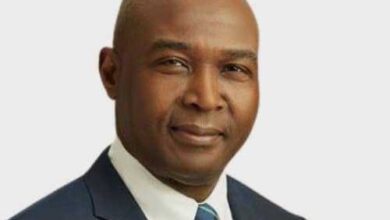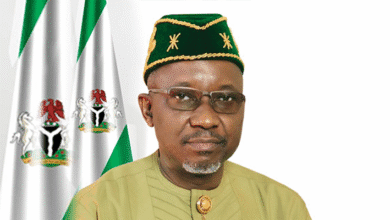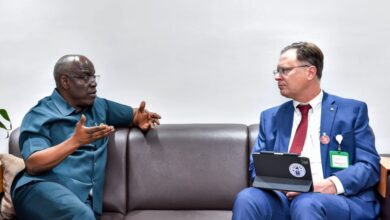Energy Security: Komolafe Rallies African Operators To Unlock Opportunities

The Chief Executive Officer of the Nigerian Upstream Petroleum Regulatory Commission (NUPRC), Engr. Gbenga Komolafe has called on operators in the African oil and gas industry to collaborate in unlocking the vast opportunities for cleaner development and energy security.
Engr. Komolafe, made the call while presenting a paper on “Energy Transition Regime: Leveraging Investment Opportunities in the Nigerian Upstream Petroleum Sector” at the 2023 Africa Oil Week (AOW).
The Week was flagged off in Cape Town, South Africa on October 9, 2023 with the theme: “Maximising Africa’s Natural Resources in the Global Energy Transition”.
In a statement he personally signed and made available to the Media on Thursday, the NUPRC boss stated that Nigeria is a nation where needs meet opportunities, and is looking forward to collaborating with interested industry players to unlock the full potential of the country’s upstream petroleum sector in an environmentally sustainable manner.
He said the country’s drive to grow oil and gas reserves and boost production, for energy security offers huge investment opportunities in exploration and development.
“But, alongside this are also huge investment opportunities for the deployment of decarbonisation technologies to ensure environmental sustainability. To support this drive, the Petroleum Industry Act (PIA) 2021, mandates that (in Nigeria) only projects with gas utilisation plans in the upstream sector will be approved or sanctioned.”
Engr. Komolafe said the NUPRC has intensified efforts at eliminating those elements that are harmful to the environment while conserving more gas for other beneficial uses.
“We have intensified efforts toward eliminating flared gas while arresting methane and other fugitive gas emissions, by commercializing forty-nine (49) flare sites through the Nigerian Gas Flare Commercialization Program (NGFCP).
“The significance of this is that more gas would be available for domestic utilisation as Liquefied Petroleum Gas (LPG), feedstock for power generation plants, fertilizer plants, petrochemicals and export.
“Further investment opportunities are also available in the licencing rounds, which would be conducted more frequently in line with the provisions of the PIA and the relevant regulations, seismic acquisition on a multi-client basis, development of deeper hydrocarbon opportunities, etc. Each of these areas provides a unique entry point for willing investors.
“Also in response to the dynamics of the energy transition and reduction in global carbon footprint, the Commission, as the country’s upstream petroleum regulator, has embarked on the development of a regulatory framework for carbon-pricing system, in line with the African carbon Markets Initiative (ACMI), as part of the efforts to shape and harness the potential of carbon markets in the upstream oil and gas sector in Nigeria.
“A new Department in the Commission, known as the “Energy Transition and Carbon Monetization”, is saddled with the responsibility of midwifing appropriate regulations and activities for the oil and gas upstream energy transition and carbon market. Consequently, industry stakeholders in Nigeria are increasingly embracing these climate action initiatives targeted at emissions reduction while ensuring that opportunities arising from the increasing demand for credit in the voluntary Carbon Markets do not elude them. More so, the ongoing pilot study on Carbon Capture Utilisation and Storage (CCUS) projects in Nigeria is an important step in our decarbonisation journey.”
He reassured willing investors that the implementation of the Host Communities Development Trust (HCDT) provisions of the PIA has restored confidence and created a more cordial relationship between the host communities and the operators.
“The Commission, in carrying out its oversight roles, has registered ninety 90 HCDTs. In addition, the Commission has partnered with an OEM to develop an intelligent, digital, automated platform for reporting, monitoring and transparent administration of the HCDTs for sustainable operations in the Nigerian communities.”
The Commission Chief Executive pointed out that Nigeria as a country is suitably positioned to become a superpower in the unfolding energy transition given its population of over 200 million people and abundant energy sources to achieve the right energy mix.
He therefore, rallied his colleagues in the oil and gas industry in the continent and globally to join forces in unlocking the vast opportunities for cleaner development and energy security; ending with the words of Robert Redford that “problems can become opportunities when the right people come together”.






